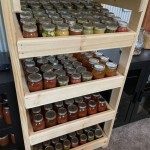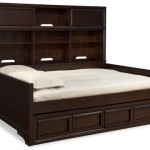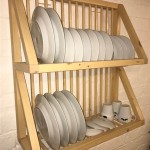How To Keep Storage Food Fresh Longer
Maintaining the freshness of stored food is crucial for minimizing waste and maximizing resources. Proper storage techniques can significantly extend the shelf life of various food items, from pantry staples to frozen goods. This article outlines essential strategies for preserving food quality and preventing spoilage in different storage environments.
Dry Storage: The Foundation of Pantry Preservation
Dry storage areas, such as pantries and cupboards, are ideal for shelf-stable items. Maintaining a cool, dark, and dry environment is paramount. Temperatures should ideally remain between 50°F and 70°F (10°C and 21°C). Excessive heat can accelerate spoilage, while fluctuations in temperature can lead to condensation, promoting mold growth. Direct sunlight can degrade nutrients and affect the flavor of certain products. Proper ventilation is also crucial to prevent moisture buildup.
Optimal Container Choices for Dry Goods
Airtight containers are essential for preserving the freshness of dry goods. These containers create a barrier against moisture, pests, and air, which can contribute to staleness and spoilage. Glass or plastic containers with tight-fitting lids are recommended. Labeling containers with the date of storage helps track the age of food items and ensures timely consumption.
First In, First Out (FIFO) for Effective Inventory Management
The FIFO method is a crucial inventory management technique for maximizing freshness. This involves using older food items before newer ones. Rotating stock regularly prevents food from expiring or becoming stale in storage. This method also helps to minimize food waste.
Refrigeration: Slowing Down the Spoilage Process
Refrigeration significantly slows down the growth of microorganisms that cause spoilage. Maintaining a refrigerator temperature between 34°F and 40°F (1°C and 4°C) is recommended. Proper temperature control prevents bacterial growth and preserves the quality of perishable items. Regularly cleaning the refrigerator is essential to prevent cross-contamination and maintain hygiene.
Strategic Food Placement Within the Refrigerator
Different areas within the refrigerator have varying temperature zones. Understanding these zones can optimize food storage. For example, the door, being the warmest part, is best suited for less perishable items like condiments. Raw meats and poultry should be stored on the bottom shelf to prevent drips and potential contamination of other foods. Fruits and vegetables should be stored in crisper drawers to maintain optimal humidity levels.
Proper Wrapping and Storage Techniques for Refrigerated Items
Proper wrapping or sealing of food items in the refrigerator is essential for maintaining freshness and preventing odors from transferring between foods. Airtight containers, wraps, and reusable silicone bags are effective options. Storing leftovers promptly and consuming them within a safe timeframe is crucial to prevent bacterial growth.
Freezing: Long-Term Preservation of Food
Freezing is an effective method for long-term food preservation. Maintaining a freezer temperature of 0°F (-18°C) or below ensures that food remains frozen solid, inhibiting microbial growth and enzymatic activity that can cause spoilage. Using appropriate freezer-safe containers and packaging is crucial to prevent freezer burn, which can affect texture and flavor.
Blanching Vegetables Before Freezing for Optimal Quality
Blanching vegetables before freezing helps preserve their color, texture, and nutrients. This process involves briefly immersing vegetables in boiling water, followed by immediate cooling in ice water. Blanching deactivates enzymes that can cause quality degradation during freezing.
Proper Packaging for Frozen Foods to Prevent Freezer Burn
Airtight packaging is essential for preventing freezer burn. Removing as much air as possible from packaging before freezing minimizes the risk of freezer burn. Specialized freezer bags, vacuum sealers, and airtight containers are recommended for optimal preservation.
Thawing Frozen Food Safely for Consumption
Safe thawing practices are crucial to prevent bacterial growth. Thawing food in the refrigerator is the safest method. Other acceptable methods include thawing under cold running water or in the microwave, ensuring the food is cooked immediately afterward. Never thaw food at room temperature, as this can promote rapid bacterial growth.
Understanding Expiration and "Best By" Dates
"Best by" or "use by" dates indicate the period during which a product is expected to retain its optimal quality. These dates do not necessarily indicate food safety but rather peak freshness. Proper storage practices can extend the usable life of many food items beyond these dates, provided they are stored and handled correctly. Always inspect food for signs of spoilage before consumption, regardless of date markings.
Regular Inventory Checks to Prevent Food Waste
Regularly checking pantry, refrigerator, and freezer inventories helps identify items nearing expiration or showing signs of spoilage. This practice allows for timely consumption or proper disposal, minimizing food waste and maximizing resource utilization.

How To Keep Food Fresh For Longer 7 Expert Tips Hum Nutrition Blog

36 Easy Food Storage Tips That Will Save You A Fortune
Keep Fruits And Vegetables Fresh Stopwaste Home Work School

21 Food Storage Tips To Keep Fresh In The Fridge For Longer

Keep Your Food Fresh With These Storage S

Keep Fruits Vegetables Fresher Longer American Heart Association

How To Keep Your Food Fresh For Longer El Ma Mia
How To Food So It Lasts Longer Plus What Not Do

20 Food Storage Tips To Make Your Groceries Last Longer All Things Mamma

Keep Produce Fresh Longer With Rubbermaid Freshworks Savers About A Mom
Related Posts








